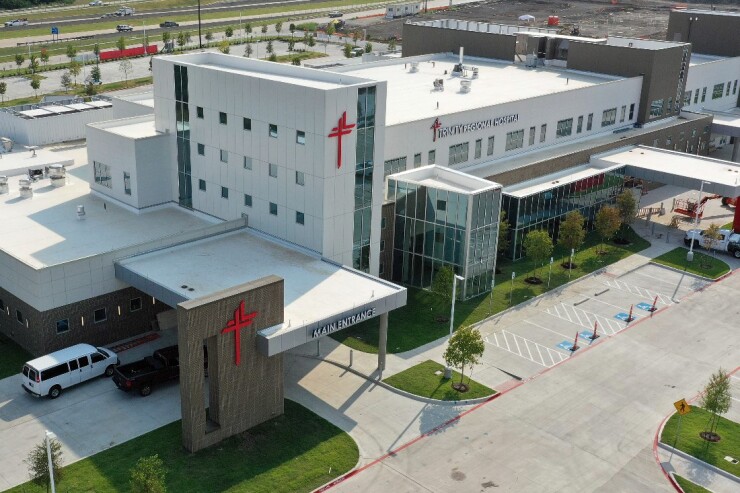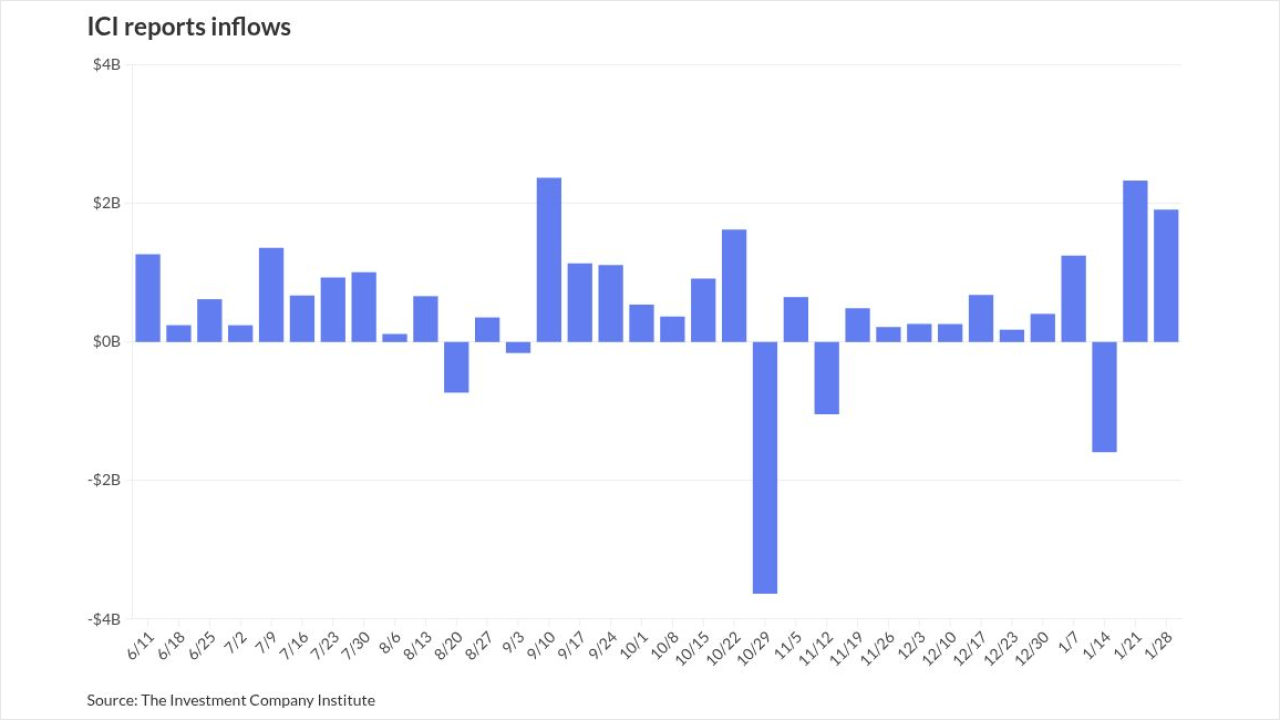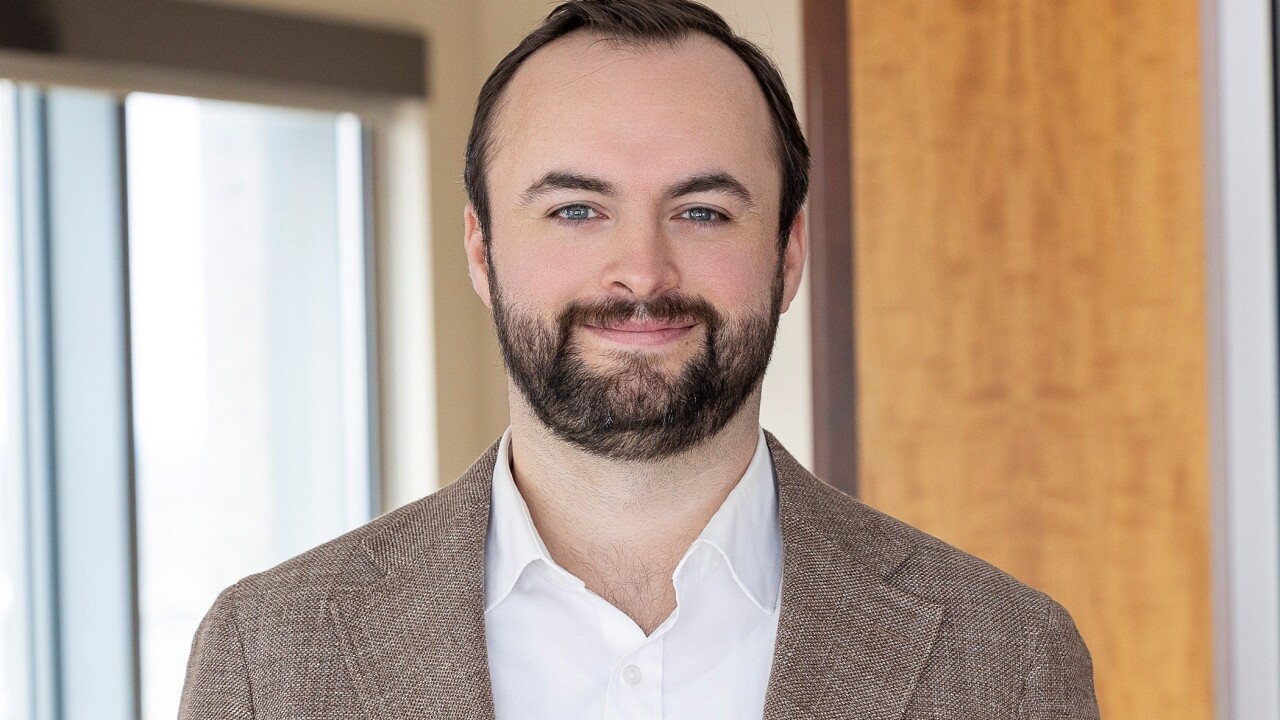A trio of Chapter 11 bankruptcies filed by Southwest nonprofit entities this year in the wake of bond impairments are closer to wrapping up their cases in federal court with the help of asset sales or debt restructuring.
Legacy Cares, which filed for bankruptcy in May after defaulting on $284 million of revenue bonds to build a participant sports venue in Mesa, Arizona, will turn its attention to a bankruptcy exit plan and disclosure statement
A federal judge hearing a case involving Dallas-area Trinity Regional Hospital Sachse that was filed in August approved the sale of the bond-financed facility last week.

The Oklahoma County Board of Commissioners agreed Nov. 15 to issue new bonds to be exchanged for now-defaulted debt its finance authority previously issued for Oklahoma City senior-living community Epworth Villa, which
The retirement and hospital sectors rank in the top five for the number of first-time payment defaults since 2009, according to Municipal Market Analytics data.
The latest BofA Global Research municipal market report said first-time defaults so far in 2023 for all sectors were up 30% over the same period in 2022 at $1.73 billion "with continued concentrations in the nursing home/senior living sector." It estimated defaults will total $1.9 billion to $2.3 billion in 2024 and will most likely come from the retirement, hospital, and industrial development sectors.
In Arizona, a deal
At a Nov. 22 hearing, Legacy Cares attorney J. Henk Taylor told Judge Daniel Collins the estate's financial position will be assessed after the sale's closing, which will take place no later than Friday. Once professional expenses and other expenses are paid, Taylor said work will start on a plan and disclosure statement.
The end of the case won't end the controversy surrounding the park.
The judge said allegations made against Legacy Cares by the U.S. trustee monitoring the bankruptcy case remain on his radar screen.
"I want to keep my eye on that and I'm not planning on losing track of those," he said.
In a June motion to appoint an independent entity to assume control of Legacy Cares' assets or dismiss the bankruptcy, U.S.
Legacy Cares disputed the allegations, and in an attempt to keep the park on track for a sale, the judge denied the motion in August, while saying he expects bondholders and others to pursue redress for potential misdeeds in other venues.
Entities involved in the sale of the mostly tax-exempt, unrated revenue bonds through the Arizona Industrial Development Authority in 2020 and 2021 and parties involved in the venue's operation are being
The complaint claims the defendants, which include bond underwriter Ziegler, bond counsel Gust Rosenfeld, and the park's former operator Legacy Sports USA, along with two of its officials, failed to disclose and misrepresented the project's material revenue and cost information.
"These misrepresentations and omissions misled investors regarding the risks associated with the project, the bonds as investments, and the project's ability to generate sufficient revenue to service the debt," the lawsuit stated.
The lawsuit, which also claims millions of dollars in bond proceeds were misused, seeks all payments on the bonds as well as more than $1 million in damages.
Ziegler has not responded to a request for comment. Gust Rosenfeld's general counsel said the law firm's role was limited to issuing an opinion on the tax-exempt status of the bonds. Legacy Sports could not be reached for comment.
In the Northern District of Texas Bankruptcy Court, Trinity Regional Hospital is also poised to sell for less than the par amount of its outstanding bonds. Sunland Medical Foundation, its nonprofit parent organization, expects to close on the facility's sale in late January to Columbia Medical Center of Plano Subsidiary LP, which submitted the winning purchase price bid of $41 million at an auction last month.
The hospital sold $67.57 million of
The bonds have been impaired since 2022 due to a draw on reserves to cover debt service and the disclosure of other covenant violations, according to MMA.
Bond trustee UMB Bank said it will file a claim for "the full amount of principal and interest owned on the bonds," according to
The project was hit with capital shortfalls, improper construction of its intensive care unit, and building, equipping, and permitting delays, as well as one investor withdrawing its commitment to purchase $15 million of the bonds right before closing, according to court documents. Once opened, the hospital
In U.S. Bankruptcy Court for the Western District of Oklahoma, a bond exchange is the key element of a reorganization plan and disclosure statement for Central United Methodist Retirement Facility doing business as Epworth Villa that were sent to creditors ahead of a
Oklahoma County commissioners last month approved a plan to issue about $86.5 million of bonds for the exchange, with $80.4 million representing principal and unpaid interest on unrated debt the county's finance authority sold to finance, renovate, and expand Epworth Villa in 2004, 2005, and 2012. The aggregate outstanding principal is about $76.5 million. The remaining $6 million of new bonds will finance capital improvements to the senior living community, which was hit hard by the COVID-19 pandemic.
"As has become common in recent years within the senior living industry, and in particular among (continuing care retirement communities), the inability to attract new residents during COVID-19 precipitated and exacerbated a severe liquidity crisis for the debtor," the disclosure statement said. "Under that strain, Epworth Villa ultimately defaulted under the terms of its existing bonds."
It added debt restructuring through the exchange is aimed at enhancing the debtor's liquidity and substantially reducing debt service.
The community has about 400 residents and patients and offers independent living and assisted and long-term care.





